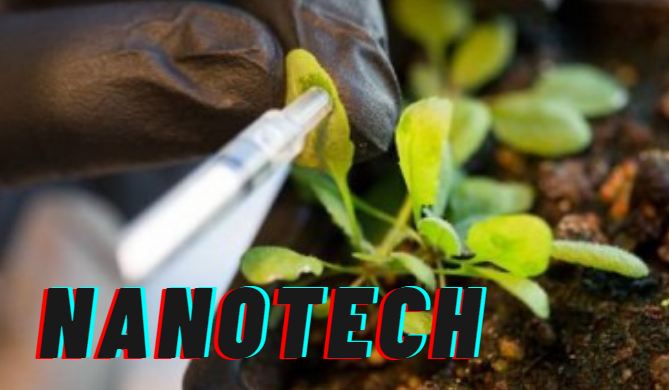In the last few years, IIT-Kanpur has been at the forefront of developing technologies that will be used by the people at the base of India’s society. From developing cost-efficient ventilator solutions to leading the country in agri-tech solutions, IIT-Kanpur students are emerging as messiahs for the downtrodden people of society.
A team of researchers at IIT Kanpur has developed novel nanoparticles that can protect crops from fungal and bacterial infections. “The invention of these novel nanoparticles would lessen the worries of crop infection and give a boost to crop yield,” said Abhay Karandikar, Director of IIT Kanpur.
The team, led by Santosh K Misra, and Piyush Kumar from the department of biological sciences and bioengineering at IIT-Kanpur has developed the novel nanoparticle-based biodegradable-carbenoid-metabolite (BioDCM), in collaboration with researchers C Kannan and Divya Mishra from ICAR-Indian Institute of Rice Research, and R Balamurugan and Mou Mandal from the School of Chemistry, University of Hyderabad.
Nano-technology can transform Indian agriculture and make the Indian farmers as productive as those in the West or China. India has the world’s most fertile land and the highest arable area ratio, but the agriculture in the country is still inefficient because science and technology found little space in traditional agriculture. The country has the lowest mechanization or agriculture and farmers in the country are only dependent on subsidized fertilizers to increase productivity.
There is huge scope for mechanization and infusion of new technologies such as drones, nano-tech to improve productivity and minimize damage. The government is promoting research in agriculture and horticulture and various schemes have been launched to support Agri-entrepreneurs.
In the last few years, multiple startups have come up in the sector, and many of them are on the path to becoming unicorns. According to various reports available in the public domain, a total of $9 billion of Foreign Direct Investment (FDI) has been invested in Indian agriculture during the last decade. This has led to an exponential rise in Agri-tech. Starting with 43 Agri-tech startups in 2013, India can now boast of more than 1,000 such startups. Modi government’s BHARATNET project to enhance rural Internet penetration has played a key role in it.
According to a report by Economic Times, the total turnover of India’s Agri-tech sector is below 1 per cent of its potential. In September 2020 it had a turnover of $204 million. ET estimates further reveal that five categories of Agri-tech will be dominating the market.
The tech market for supplying farm inputs is alone expected to be as big as $1billion. Precision agriculture and farm management are expected to have a turnover of $3.4 billion. Similarly, quality management and traceability are expected to contribute a total of $3 billion. All these forecasts are true for 2025.
Nano-technologies can be used for the improvement of soil properties and the removal of toxins. This technology will be very useful, especially in areas like Punjab, Haryana, and Western UP where the soil is intoxicated due to overuse of chemical fertilizers. Nano-Biochar for Improvements of Agricultural Soil Properties, Nano-biochar for Environmental Remediation is the emerging area where other institutes should also focus.
Currently, around 58 per cent of the Indian population is dependent on agriculture for their livelihood. If technologies like nano-tech, Blockchain, Internet of Things, Drones, and Satellites could be utilized judiciously, it could lead to a huge change in India’s agriculture domain.
